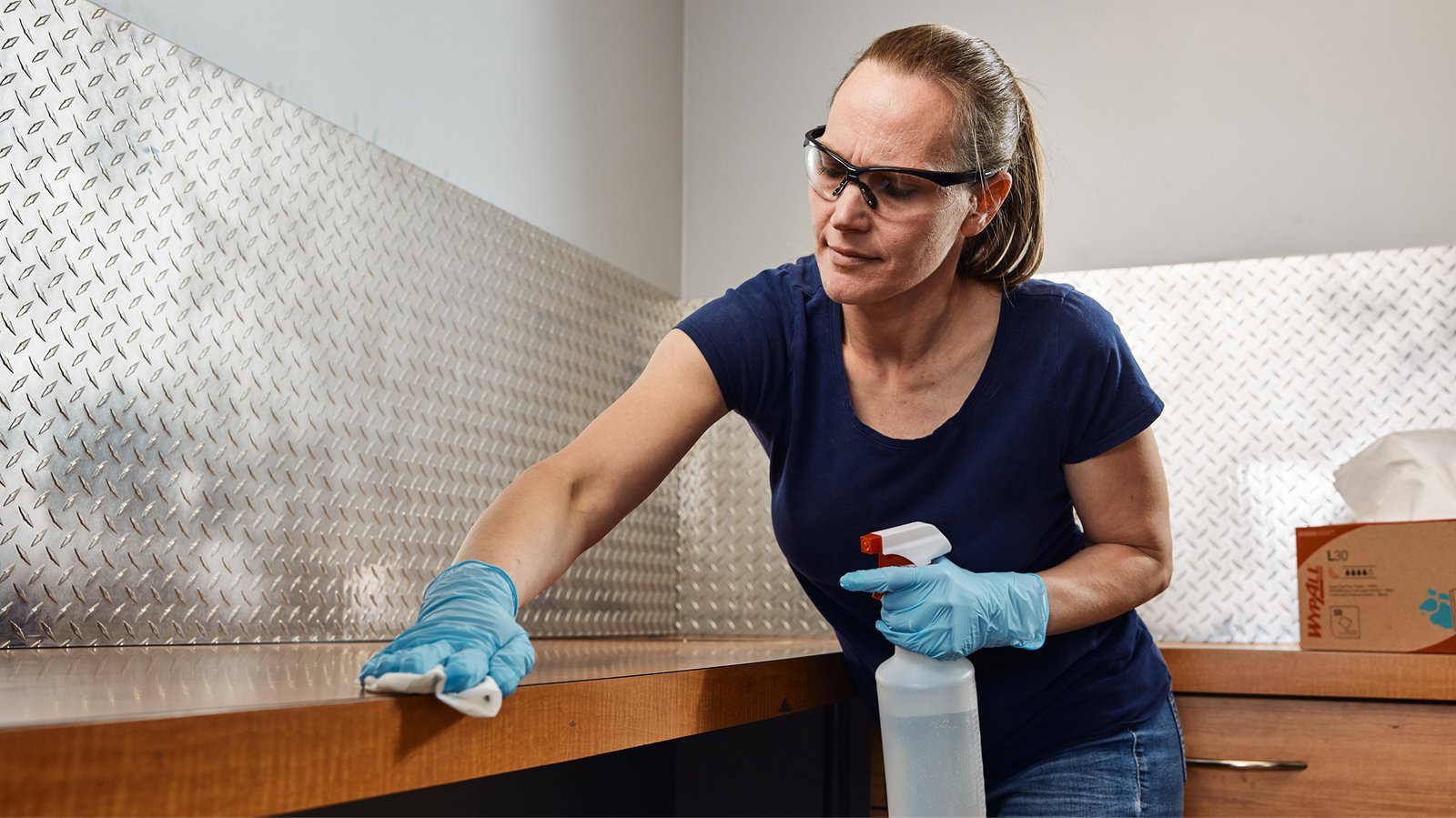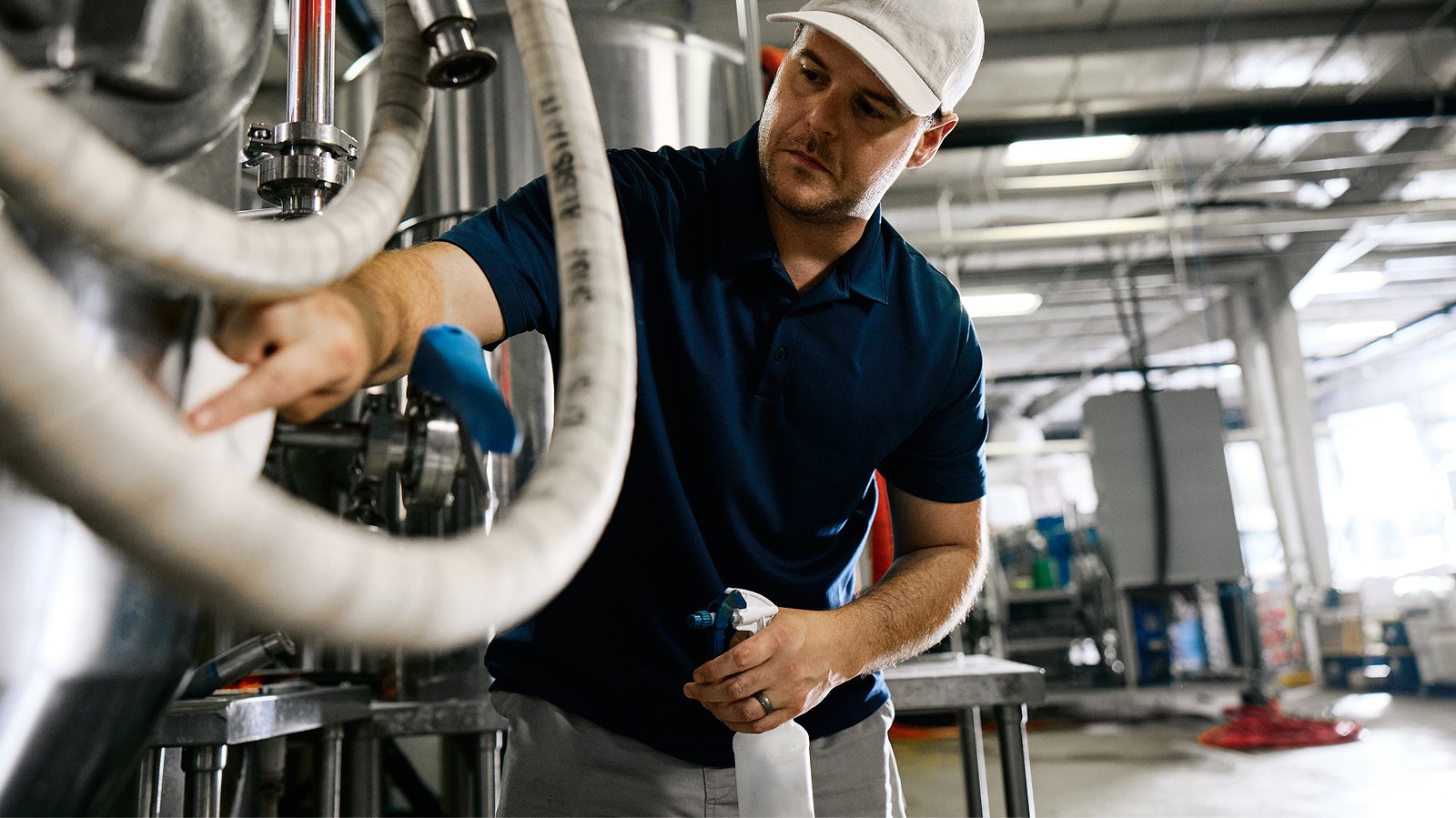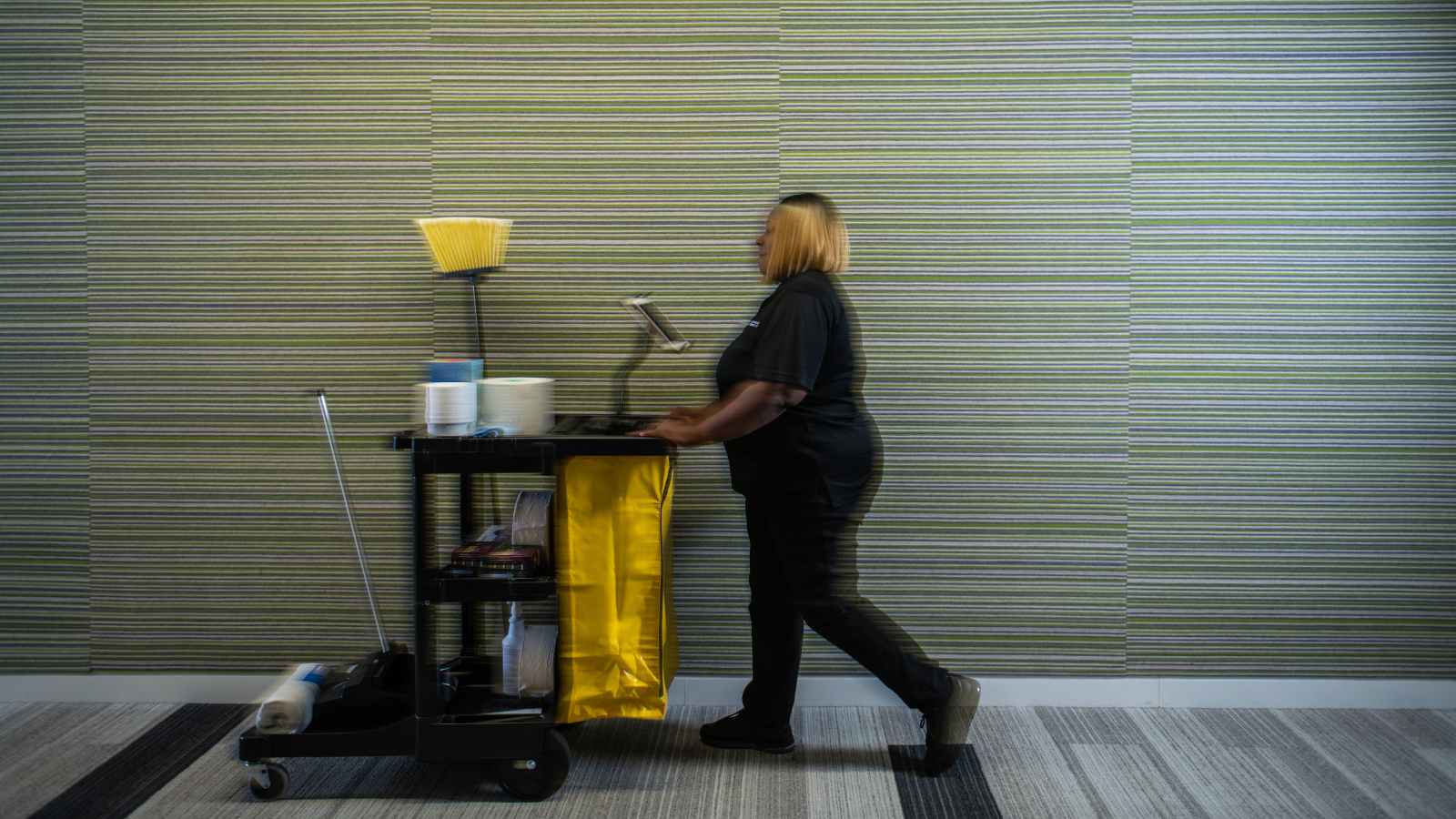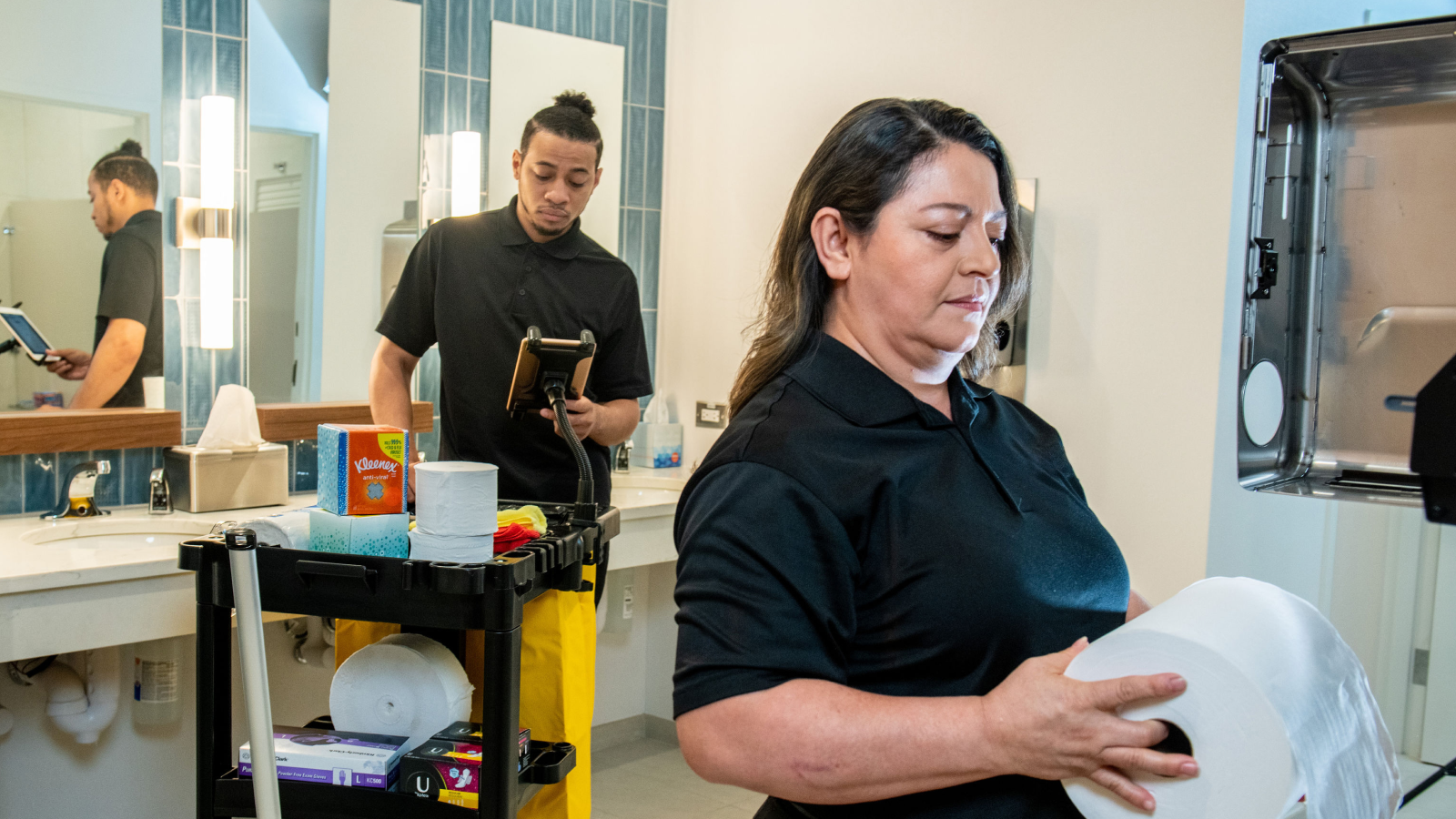Last Updated JULY 2025
Shop Towels and Rags vs. Disposable Wipes
When it comes to wiping a surface – whether it’s a counter or machine part – there’s a perception that using a rag or shop towel multiple times is less wasteful than using a disposable wipe.
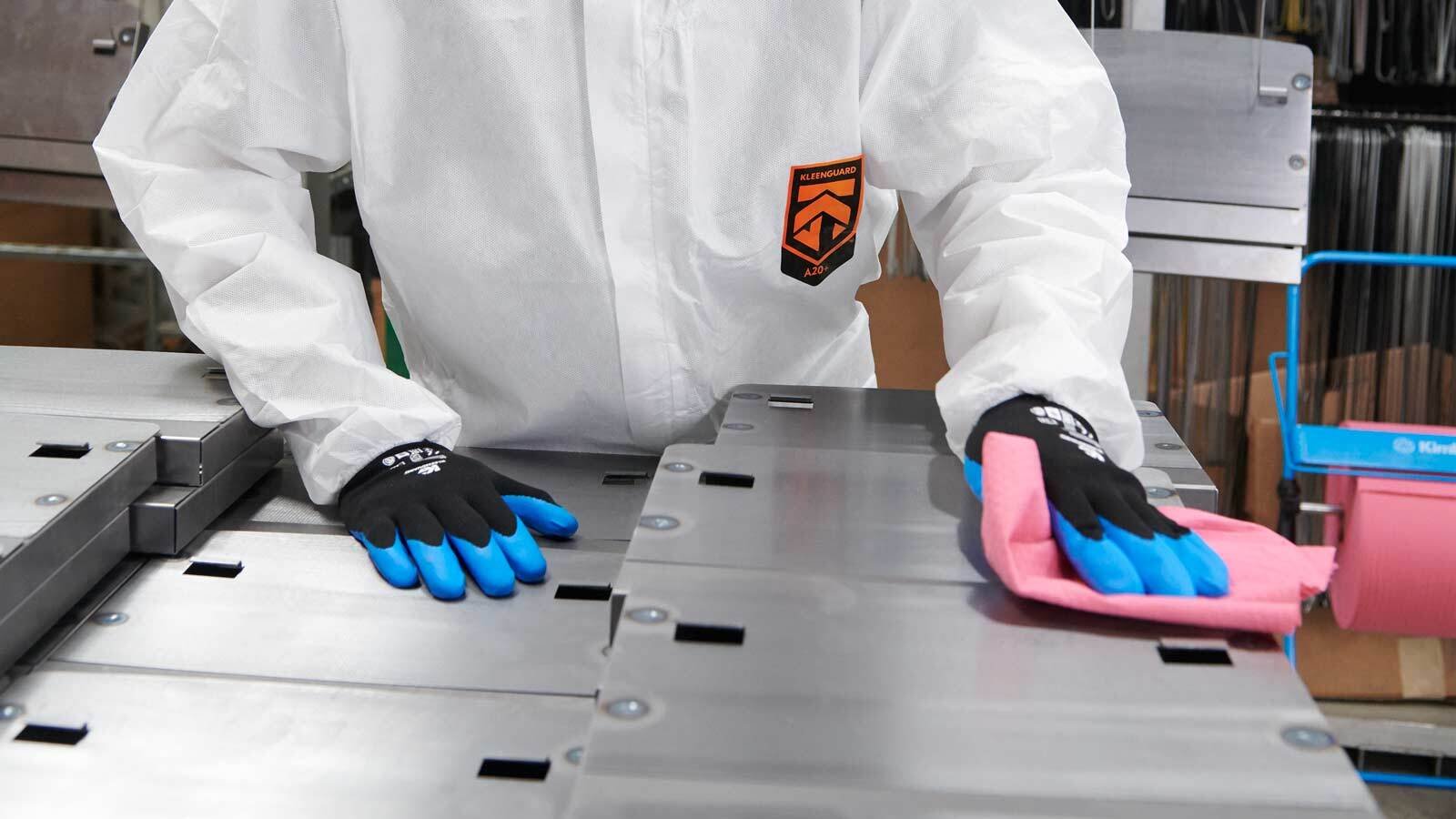
Rags and shop towels made of cloth material (and recycled clothing) can often complicate instead of improving the manufacturing processes, according to the Kimberly-Clark Professional™ report “Industrial Wipers: How They Impact Product Quality, Productivity, Worker Health & the Environment.”
Because rags and towels sometimes leave behind lint, dirt and debris, using them can compromise a manufacturing process and those contaminants can potentially get into the product being manufactured, resulting in rework.
“If anything, rags and laundered shop towels increase defects,” said Ankur Gupta, category manager, WypAll® Wipes, at Kimberly-Clark Professional. For instance, rags that have been used to wipe down industrial equipment contain debris like metal shavings and pins.
A 2011 study conducted by Gradient, an environmental and risk science consulting firm, and co-sponsored by Kimberly-Clark Professional found that a worker using up to 12 laundered shop towels a day may be exposed to high levels of antimony, beryllium, cadmium, cobalt, copper, lead and molybdenum.
“For goodness sake, asking people ‘Why do you use a rag?’ is like asking ‘Why would you use a used piece of underwear?’ when you’re doing your work,” Gupta said.
Here are some other reasons why rags and laundered shop towels are not as dependable as industrial wipes:
Rags
- Are inconsistent in size, shape and material
- May contain pins, buttons and metal shavings which can lead to scratches and other imperfections on surfaces
- Occupy more storage space in industrial warehouses than disposable wipes
Laundered Shop Towels
- Can retain lead, a toxic heavy metal, which can cause serious health issues to the worker like elevated blood lead levels and hypertension
- Not engineered for specific applications
- Contribute to landfill waste
Disposable Wipes Are More Efficient Than You Think
Disposable wipes like WypAll Wipes are absorbent, making it quick to clean a piece of equipment and can reduce machine stoppages.
“When choosers use the right tools, they will ultimately see that they can impact quality, delivery and costs in a much bigger way than they could have imagined,” Gupta said. “Now that’s efficiency.”
















